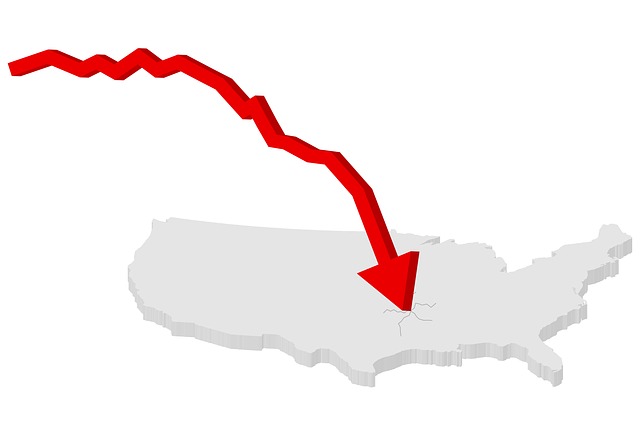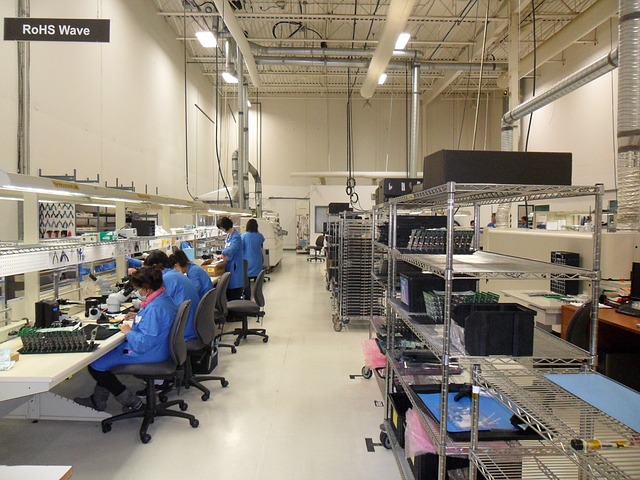
On a recent visit to Omaha, Economics Professor Richard D. Wolff addressed a receptive audience about the current health of our economy (newsflash: it’s not good) and put forward some radical, but simple solutions. Wolff’s appearance was part of the Holland Lecture Series sponsored by the First Unitarian Church of Omaha and held in the elegant Holland Performing Arts Center. He spoke and answered questions for more than two hours and I will try to highlight a few of his salient points. He’s a captivating and persuasive speaker and it’s not easy to do justice to the entire lecture.
According to Professor Wolff, if we don’t make fundamental changes in the way we approach capitalism and conduct business, we’re screwed. He ran through a brief history of our economic system and described how innovation, achievement and consistently rising wages made the United States the wealthiest nation on Earth. But then, something changed….
Wages stagnated in the 1970s.
From about 1820 to 1970 Wolff asserts that Americans enjoyed almost constantly rising wages and, as result, a rising standard of living with each successive generation. There was a demand for labor and America solved that problem with immigration. Immigrants were lured away from their families and their homelands with the promise of higher wages. To get them to move west and away from the cities on the East Coast, America offered even higher wages. It was expected that each generation would do a little better than their parents, but that changed in the ‘70s. Thanks to a confluence of events the demand for labor dropped and wages – once adjusted for inflation – stayed flat.
Here are a few reasons why wages stagnated.
- Technology: Computer technology made it easier to automate some tasks that were previously accomplished by humans
- Outsourcing: Thanks to technology (computers, phones, planes) and cheaper labor overseas, jobs started moving abroad.
- Women: The women’s movement meant that women were entering the workforce in larger numbers than ever before. Poor and minority women always worked, but now many more women were competing with men for jobs.
- Immigration: Everything listed above coincided with a wave of immigration from Latin America.
 Debt
Debt
To compensate for the stagnant wages and desire for a rising standard of living, Americans started borrowing more. In the 1970s very few people had credit cards, but that began to change. Instead of raising wages corporations were lending. Debt and investing in people’s debt eventually became a whole segment of the financial services industry. The system finally reached a breaking point in 2007 with the sub-prime mortgage crisis. We’d maxed out Americans’ ability to keep borrowing and paying it back. Wolff says we came shockingly close to total collapse in 2008 — the kind of collapse where the electricity doesn’t go on. TOTAL COLLAPSE.
Taxes
When The Great Depression befell the United States the reaction was a left-leaning populist movement. Roosevelt, who came from the privileged class, believed that those most able to shoulder the burden should be the ones who paid the highest taxes. The rich and corporations were the most heavily taxed groups and remained the most heavily taxed groups through the 1960s. Over time, however, the tax burden was gradually shifted from large corporations to the individual. A conservative shift in politics starting in the ’70s meant that we favored big business over unions and the average worker.
Wolff also points out that big business and the wealthiest Americans started buying their way into politics in the 1970s, which moved the needle to the right and away from helping the majority of citizens. His argument is bolstered by the recent Princeton and Northwestern study demonstrating that the United States has become an oligarchy, rather than a democracy or a republic.
The Solution
Wolf believes that if we keep going in our current direction, the future is pretty grim. In fact, he says that “the future is Detroit.” Once a “showplace” for American innovation and achievement Detroit is now a wasteland where there isn’t enough money to control packs of wild dogs. He suggests that we must take capitalism to another level and shift it toward the co-op model of worker owned companies. He gives the Mondragon Corporation of Spain as an example. It’s the seventh largest company in Spain and employs more than 80,000 people. It’s run democratically.
Professor Wolff is definitely more left-wing than the average American – or even the average Democrat – these days. However, the Nebraska audience was engaged and supportive throughout his lengthy lecture. “It’s probably the Unitarians,” he joked. Above all, Wolff strikes me as a populist. Some of the problems he is trying to tackle are recognized by many on the right as well (ahem, outsourcing). Whether his idea of worker-owned cooperative companies will become a reality remains to be seen, but most of us can agree that our political and economic system is broken and if we don’t reclaim it for ourselves….well, the future is Detroit.

